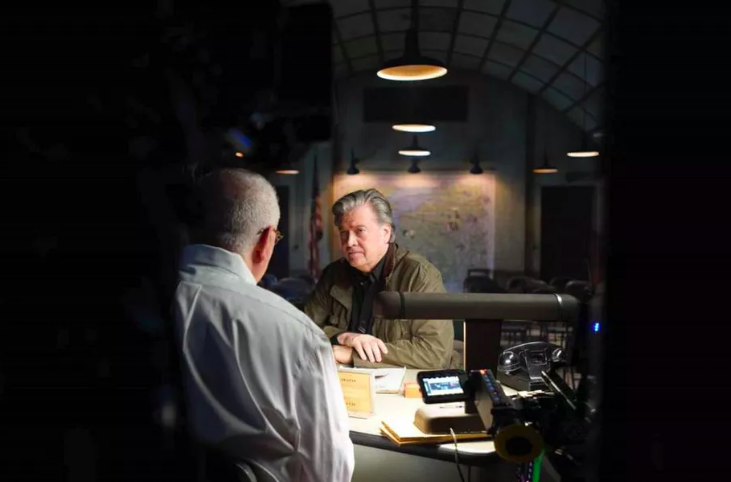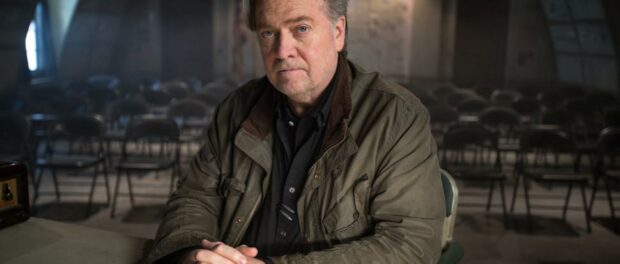Film Review: American Dharma
Errol Morris is a respected American filmmaker who, over the course of his long career, has produced, directed, and written an array of important, unique, and thought provoking films. Included in his filmography are the documentaries Gates of Heaven (1978), The Thin Blue Line (1988), Fast, Cheap & Out of Control (1997), and The Unknown Known (2013). Morris’ latest cinematic venture, American Dharma, focuses on one of the most controversial figures in modern politics: former Trump adviser Steve Bannon. Many regard him as being the architect, or at the very least, one of the chief driving forces behind Donald Trump’s 2016 campaign and unlikely rise to the highest office in America.
The revealing and at times contentious conversation between the filmmaker and influential anti-globalist is the central component of American Dharma. The film’s title, in Bannon’s own words, refers to a combination of duty, fate, and destiny along with his personal beliefs regarding the importance of fulfilling one’s personal dharma. Throughout the documentary, Errol Morris utilizes his interviewing skills to challenge Bannon on his political ideology and views on such weighty topics as populism, the Vietnam War, and the rise of nationalism. Morris pulls no punches and bluntly questions Bannon’s motivations and sociopolitical goals. At one point in the film, Morris even asks Trump’s former advisor straight out, “Do you just want to destroy everything?”
In order to provide filmgoers with a glimpse into Steve Bannon’s mindset and the factors that helped shape his worldview, Morris interweaves an array of classic film clips into the narrative of American Dharma. Included are such movies as Twelve O’Clock High (1949), Paths of Glory (1957), Bridge on the River Kwai (1957), My Darling Clementine (1946), and The Searchers (1956). Morris uses these cinematic selections in order to illustrate Bannon’s polarizing views on a variety of topics such as nationalism, war, and America’s place (and role) in the world.
Given the ongoing impeachment hearings currently taking place in the U.S., the release of American Dharma takes on an added degree of significance by providing provocative insights into one of the major players responsible for Donald Trump’s successful presidential campaign. At one point in the documentary, Bannon discusses the need for major political reform and the importance of tearing down and disrupting the current American system of government. Bannon even refers to Trump as being the blunt force instrument which was needed to defeat Hilary Clinton and overturn the status quo in the last federal election.

Again and again in the course of American Dharma, Morris discusses Bannon’s anti-globalist and nationalist ideology using violent or militaristic terms. Bannon labels himself as an “apocalyptic rationalist.” Time and time again the theme of a coming revolution is mentioned throughout the documentary. Indeed, the filmmaker visually references themes of violence and mass destruction many times within the course of the documentary. This aspect of American Dharma powerfully reaches its inevitable climax at the conclusion of the film.
American Dharma is an important film not only due to the way in which Morris is able to dissect and examine the various factors leading to Trump’s election as the 45th American president, but also in regards to its thoughtful examination of the rise and influence of nationalism throughout the world. The documentary aptly provides an insightful glimpse into the mind of and motivations behind Steve Bannon and his divisive political ideology. Perhaps one of the most striking moments in American Dharma is Bannon’s paraphrasing of a quote from John Milton’s Paradise Lost. Summing up his role as an agent for radical political reform, Bannon notes his feeling that “it’s better to reign in hell than serve in heaven.”
American Dharma screened in Montreal in November.






